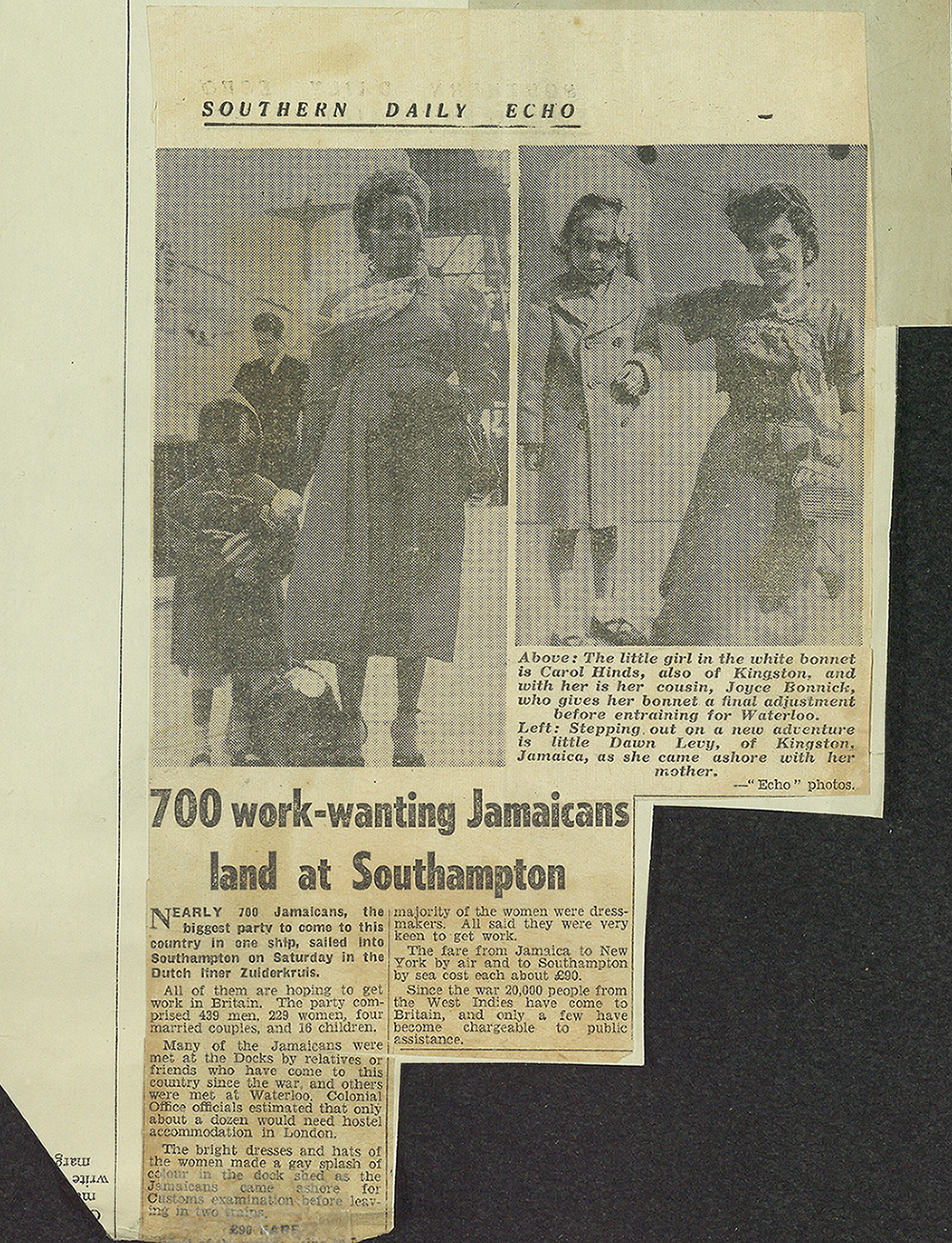
Newspaper story from the ‘Southern Daily Echo’ [Southampton] entitled ‘700 work- wanting Jamaicans arrive at Southampton’, 3 May 1954, Catalogue ref: AST 7/1125
Transcript
Caption: right photograph
Above the little girl in the white bonnet is Carol Hinds, also of Kingston and with her is her cousin, Joyce Bonnick, who gives her bonnet a final adjustment before entraining for Waterloo.
Caption: left photograph
Stepping out on a new adventure is little Dawn Levy, of Kingston, Jamaica, as she came ashore with her mother. “Echo photos”.
Main article:
700 work-wanting Jamaicans land at Southampton
Nearly 700 Jamaicans, the biggest party to this country in one ship, sailed into Southampton on Saturday in the Dutch liner Zuiderkruis.
All of them hoping to get work in Britain. The party comprised 493 men, 229 women, four married couples, and 16 children.
Many of the Jamaicans were met at the Docks by relatives or friends who have come to this country since the war, and others were met at Waterloo. Colonial officials estimated that only about a dozen would need hostel accommodation in London.
The bright dresses and hats of the women made a gay splash of colour in the dock shed as the Jamaicans came ashore for Customs examination before leaving in two trains.
£90 Fare
… [Newspaper damaged]
Majority of the women were dressmakers. All said they were very keen to get work.
The fare from Jamaica to New York by air and to Southampton by sea cost about £90. Since the war, 20,000 people from the West Indies have come to Britain, and only a few have become chargeable to public assistance.
- What was the name of the ship that bought over 700 Jamaicans?
- What type of work do most of the women hope to find?
- How many of the passengers needed to stay in a hostel?
- How many have ’travelled from the ‘West Indies’ since the Second World War?
The newspaper says that ‘only a few have become chargeable to public assistance’. This means few immigrants got money (benefits) from the government.
- Does this comment explain how the writer in the newspaper felt about immigrants coming to Britain? Give your reasons.
